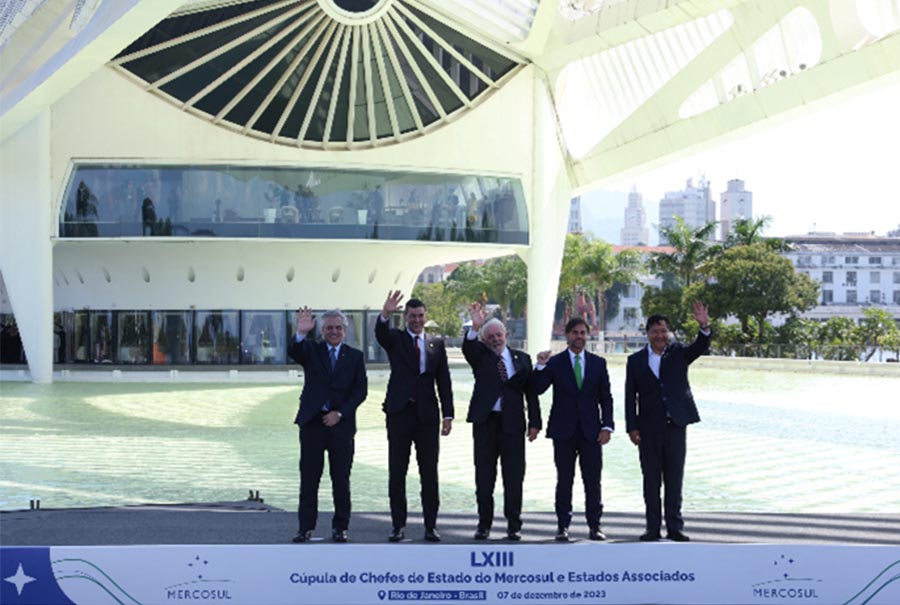RIO DE JANEIRO, (Reuters) – Presidents of the four Mercosur nations met for their annual summit yesterday with black clouds hovering over the fate of a trade deal with the European Union, as well as the future of the South American common market itself.
They had hoped to announce a free trade agreement with the EU, opening markets home to some 732 million people.
The change of government in Argentina just three days after the summit has derailed a final agreement on issues that would need approval from the incoming president, Javier Milei, a radical libertarian who has said Mercosur serves no purpose.
Brazilian President Luiz Inacio Lula da Silva, hosting the summit in Rio de Janeiro, admitted frustration with his failure to close the deal.
“I spoke to almost all the presidents of the European Union. … I urged (French President Emmanuel) Macron to stop being so protectionist … But in any case, it didn’t work,” Lula said in a speech. “The resistance from Europe is really strong.”
Ajoint Mercosur-EU statement said negotiations continue.
Brazilian diplomats said they are hopeful that Argentina under Milei will continue the trade negotiations with the EU, and his designated Foreign Minister Diana Mondino has said as much during a visit to Brasilia and an interview with Reuters.
“We are waiting to see what Argentina will want,” said a Brazilian official, requesting anonymity due to the sensitivity of the matter. “Obviously, they will be more liberal, but will they be pragmatic?”
Trade experts say the window of opportunity to clinch the EU-Mercosur deal is closing and its ratification by the European Parliament faces the hurdle of elections next year in Europe.
Strong criticism last week from Macron, after a meeting with Lula in Dubai, may rally more resistance to the deal first agreed in 2019 but then delayed by European demands for environmental safeguards.
Oliver Stuenkel, a professor at the Getulio Vargas Foundation, a think tank in Sao Paulo, is skeptical of the trade deal’s ratification by Europe, where opponents will jump on Milei’s radical ideas to justify their views.
“European protectionists could use Milei’s radical rhetoric, particularly on climate, to try to block the deal,” he said. “Despite his recent moderation, Milei will provide lots of material for those who seek to demonize him.”
On the campaign trail, Milei threatened to quit Mercosur, exploding the common market with Brazil, Uruguay and Paraguay. But his foreign policy advisor Mondino has said Argentina will not leave the bloc.
Former Brazilian Foreign Trade Secretary Welber Barral said Mercosur is here to stay despite its faults.
“Mercosur is an incomplete customs union, and regional trade has progressed slowly in the last two decades. But the political cost of abandoning it is very high, even for Milei,” he said.
The view was echoed by Marcel van Hattem, a conservative lawmaker and critic of Mercosur on the foreign relations committee in the lower house of Brazil’s Congress.
“If Mercosur returns to its original purpose of free movement and free markets, which Milei also advocates, it will not only survive but become useful for its members,” he said.
Mercosur’s economies amount to $2.86 trillion in gross domestic product, and trade between the four countries has increased tenfold since its creation in 1991, the bloc said.
While the EU deal is on hold, Mercosur will sign a trade and investment agreement with Singapore in Rio on Thursday, organizers said, in the first such accord by the South American grouping in 12 years, and its first with an Asian country.
The summit was held at Rio’s Museum of Tomorrow.









